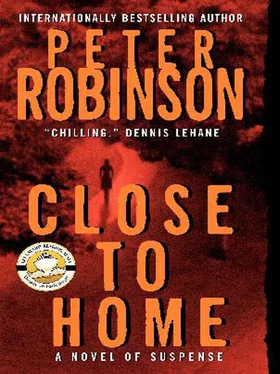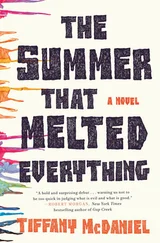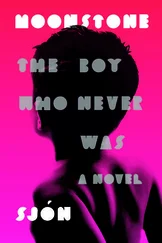Banks dropped his bag at the bottom of the bed and stretched. It had been a long drive, and the time spent in the pub garden, the pint he had drunk with DI Hart, all conspired to make him feel tired. He thought of taking a brief nap before tea but decided it would be rude; he could at least go down and talk to his parents, as he hadn’t been in touch for so long.
First, he unpacked his shirt to hang up in the wardrobe before the creases became too permanent. The other clothes in the wardrobe were unfamiliar, but Banks noticed several cardboard boxes on the floor. He pulled one out and was stunned when he saw it contained his old records: singles, as those were all he could afford back then, when they cost 6/4 and an LP cost 32/6. Of course, he got LPs for Christmas and birthdays, often with record tokens, but they were mostly Beatles and Rolling Stones, and he had taken those to London with him.
The records here represented the beginnings of his musical interests. When he left, he had soon gone on to Cream, Hendrix and Jefferson Airplane, then later discovered jazz and, later still, classical, but these… Banks dipped his hand in and lifted out a stack, flipping through them. Here they were in all their glory: Dusty Springfield’s “Goin’ Back,” The Shadows’ “The Rise amp; Fall of Flingel Bunt,” Cilla Black’s “Anyone Who Had a Heart” and “Alfie,” “Nut Rocker” by B. Bumble and the Stingers, Sandie Shaw’s “Always Something There to Remind Me,” “House of the Rising Sun” by the Animals and “As Tears Go By” by Marianne Faithfull. There were many more, some he had forgotten, and a few really obscure artists, such as Ral Donner and Kenny Lynch, and cover versions of Del Shannon and Roy Orbison hits made by unnamed performers for Woolworth’s cheap Embassy label. What a treasure trove of nostalgia, all the stuff he listened to between the ages of about eleven and sixteen. His old record player was long gone, but his parents had a stereo downstairs, so perhaps he would play a few of the old songs while he was home.
For the moment, he put back the box and pulled out another one, this one full mostly of old toys. There were model airplanes – Spitfires, Wellingtons, Junkers and a Messerschmitt with a broken wing – a couple of Dinky Toys, a Dan Dare Rocket Gun, and a small clockwork Dalek that said “Ex-ter-min-ate! Ex-ter-min-ate!” as it rolled along like an upturned dustbin. There were a few old annuals, too – The Saint, Danger Man and The Man From U.N.C.L.E. – along with what had once been his pride and joy, a pocket-size Philips transistor radio. Maybe if he put in some new batteries, he could even get it working.
The third box he opened was full of old school reports, magazines, letters and exercise books. He had sometimes wondered over the years what had happened to all this stuff and assumed, if anything, that his parents had chucked it out when they figured he wouldn’t need it anymore. Not so. It had been hiding away in the wardrobe all this time. There they were: Beatles Monthly, Fabulous, Record Song Book and The Radio Luxembourg Book of Record Stars .
Banks pulled out a handful of the small notebooks and found they were his old diaries. Some were plain Letts’ diaries, with a little slot for a pencil down the spine, and some were special-themed, illustrated ones, such as pop star, television or sports diaries. The one that was of most immediate interest to him, though, was a Photoplay diary with a stiff, laminated cover and a color photo of Sean Connery and Honor Blackman from 1964’s Bond film, Goldfinger, on the front. Inside, a photo of a different film star faced each page of dates. The first was Brigitte Bardot, for the week starting Sunday, December 27, 1964, the first full week of his diary for 1965, the year Graham disappeared.
Michelle took off her reading glasses and rubbed the bridge of her nose, where she sensed a headache beginning to form between her eyes. She suffered from headaches frequently these days, and while her doctor assured her there was nothing seriously wrong – no brain tumor or neurological disease – and her psychiatrist told her that it was probably just stress and “coping,” she couldn’t help but worry.
The air quality in the archives office didn’t help either. Instead of signing the heavier boxes out and carrying them up to her office, Michelle had decided she might as well look through the material down there. The reading room was just a glassed-in alcove with a desk and chair. It stood at the entrance to several parallel aisles of old papers, some of which went back to the late-nineteenth century. If the environment had been a little more comfortable, she might have considered having a browse around the archives. There was bound to be some fascinating stuff.
For the moment, 1965 would have to do. Michelle wanted to get a general idea of the crimes occurring around the time of Graham’s disappearance, to see if she could come up with any links to Banks’s mysterious stranger, and Mrs. Metcalfe had directed her to the logbooks that indexed and recorded all complaints and actions taken, day by day. It made for interesting reading, most of it not relevant to what she was looking for. Many of the calls listed went no further – missing pets, some domestic complaints – but the lists gave her a good impression of what daily life must have been like for a copper back then.
In May, for example, a man had been arrested in connection with an assault on a fourteen-year-old girl, who had accepted a lift with him near the A1, but he bore no resemblance whatsoever to Banks’s description of the man by the river. Also in May there had been a major jewelry robbery at a city center shop, netting the thieves eighteen thousand pounds. In June, a number of youths had gone on the rampage and slashed tires on about thirty cars in the city center; in the same month, a twenty-one-year-old man had been stabbed outside The Rose and Crown, on Bridge Street, after an argument over a girl. In August, two alleged homosexuals had been questioned in connection with lewd goings-on at the country mansion of a local bigwig, Rupert Mandeville, but the anonymous informant couldn’t be located, and all charges had later been dismissed for lack of evidence. Hard to believe that it was a crime to be gay, Michelle thought, but 1965 was back in the Dark Ages, before homosexuality had been legalized in 1967.
There were certainly plenty of incidents before and after Graham Marshall’s disappearance, Michelle was fast discovering, but none of them seemed to have anything remotely to do with Banks’s riverbank adventure. She read on. In July, police had investigated complaints about a local protection racket modeled on the East London Kray gang operation, allegedly led by a man called Carlo Fiorino, but no charges were brought.
The more she read, the more Michelle realized what a vast chasm yawned between 1965 and today. She had, in fact, been born in 1961, but she was damned if she was going to admit that to Banks. Her own teenage years had been spent in what Banks would no doubt call a musical wasteland made up of The Bay City Rollers, Elton John and Hot Chocolate, not to mention Saturday Night Fever and Grease . Punk came along when she was about fifteen, but Michelle was far too conservative to join in with that crowd. If truth be told, the punks scared her with their torn clothes, spiky hair and safety pins in their ears. And the music just sounded like noise to her.
Not that Michelle had had a great deal of time for pop music; she had been a studious child, lamenting that it always seemed to take her so long to finish her homework when others were done and out on the town. Her mother said she was too much of a perfectionist to let something be and have done with it, and perhaps that was true. Painstaking. Perfectionist. These were labels she had come to know and hate from friends, family and the teachers at school. Why not just say pedestrian and plodding and have done with it, if that was what they meant? she sometimes wondered.
Читать дальше












